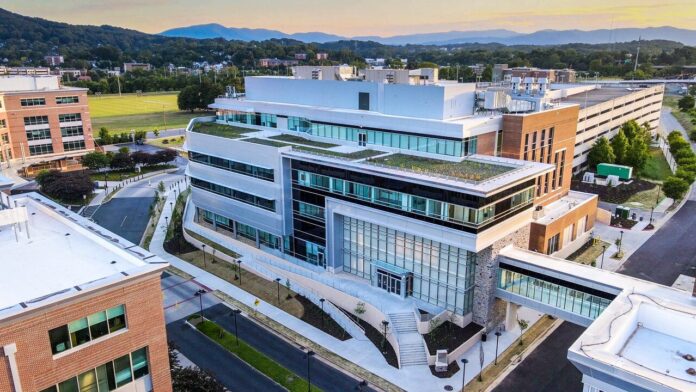Brain Tumor Awareness Month and National Cancer Research Month take center stage in May. Virginia Tech’s Fralin Biomedical Research Institute at VTC is dedicated to advancing our understanding of cancer and developing new ways to treat and prevent it.
Teams of investigators are working to uncover the molecular mechanisms that drive cancer growth, migration, and metastasis. They are tackling a range of cancers, from childhood cancers to breast cancer to glioblastoma, one of the deadliest forms of brain cancer. Scientists are not just looking for new treatments, but working to make existing treatments more effective by making cancer cells more vulnerable and developing entirely new treatments that can halt cancer in its tracks and prevent its return.
- Preventing the spread of cell death after injury – Robert Gourdie’s lab tests new compounds targeting connexin channels for therapeutic use in wound healing, reducing scarring following breast reconstruction surgery, as well as applications to treat glioblastomas and drug-resistant cancers.
- Developing new cancer therapies – Samy Lamouille’s lab studies how cancer cells communicate; he is developing novel therapeutic strategies to target these communication mechanisms to prevent metastases in human cancer progression.
- Connecting scientific disciplines to cure cancer – Carla Finkielstein studies the molecular clocks that instruct cells when to grow, divide, and die, and how they’re impaired in cancer cells. Her research offers a foundation for the emerging field of chronotherapeutics.
- Understanding health impacts of cancer diagnosis – Warren Bickel studies how a cancer diagnosis and an individual’s ability to think about and plan for the future affects their health.
- Tracking fluid flow to understand cancer, aging and women’s health – Jenny Munson studies how cancer increases fluid flow between cells, altering how tumors respond to drug therapies. She is working to commercialize some of her findings in Cairina Inc., a startup biotech company whose technologies will allow clinicians to better fight cancer and deliver personalized medicine by mapping individual tumors.
- Finding new therapies to fight pediatric brain cancer – At the Fralin Biomedical Research Institute at VTC labs at Children’s National Research Institute in Washington, D.C., Jia-Ray Yu is seeking better understanding and therapies surrounding pediatric midline glioma, and Kathleen Mulvaney is exploring cellular communication to find better cancer treatments.
But the Fralin Biomedical Research Institute at VTC doesn’t work alone. The Virginia Tech Cancer Research Alliance, collaborates with cancer scientists from across multiple universities and health centers to introduce innovative preventions, diagnostics, and therapeutics for a variety of cancers.
On May 25, the second annual Virginia Tech Cancer Research Alliance Retreat will be held at the Children’s National Research and Innovation Campus in Washington, D.C., where alliance members will share their research, forge new collaborations, and learn from keynote speakers spanning veterinary and human oncology and biomedical cancer research.

